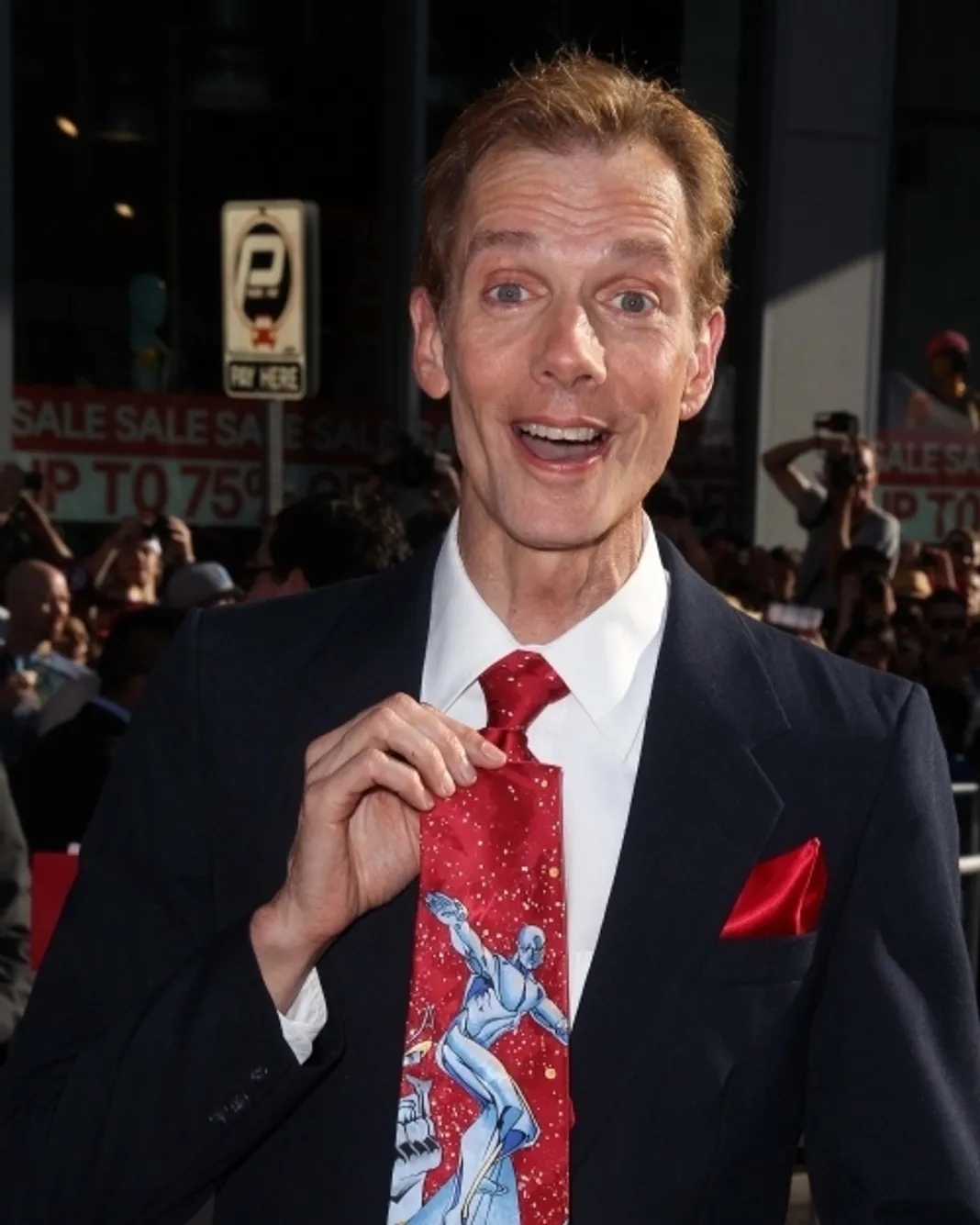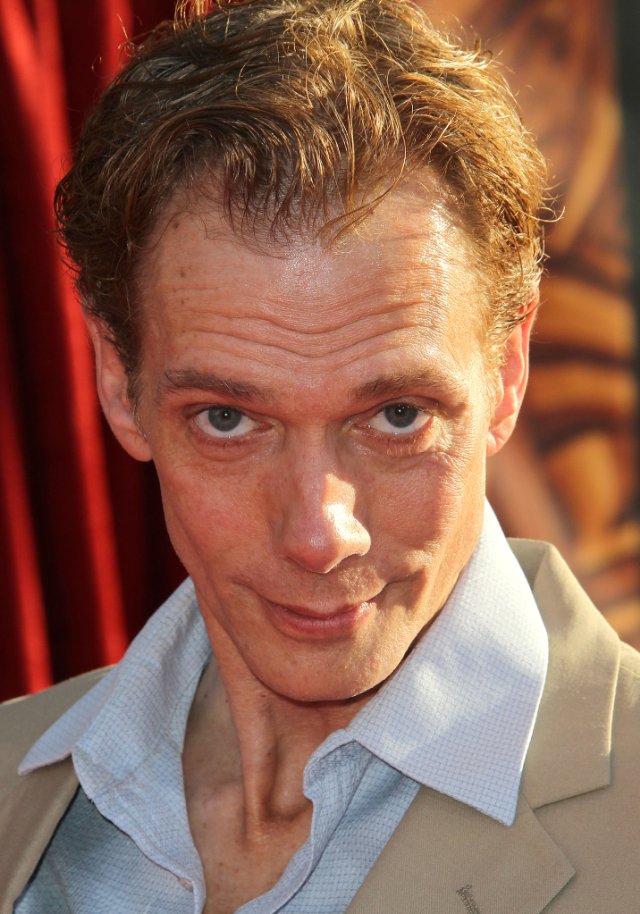
You’ve been working in a very visual effects-heavy world for a long time, be it any kind of visual effects. What was the most awe-inspiring visual effects moment that you saw on the big screen in the past year?
I did see Rise of the Planet of the Apes, and I was blown away once again by the visual effects behind these ape characters. With Andy Serkis at the heart and soul of that main ape…he had the same effect on me in King Kong, and as Gollum in Lord of the Rings. I was actually watching an acting performance, not a drawing. I don’t want to put quotes in Andy Serkis’ mouth, but I could have sworn I heard him say before that to him, an acting performance is all the same. Whether they’re putting makeup on him before the performance or after. In those circumstances, much like his performance in Rise of the Planet of the Apes, his makeup was applied afterwards. It was digital.
And would you agree with that statement?
Wholeheartedly. You have to find the heart and soul of the character, and how that character relates to the other characters in the film. You still have to do all of your “actor shmactor” work to create a character like that, from the actor’s point of view. Whatever the look of that character is…take Meryl Streep, for instance. She has an Oscar nomination for her performance as Margaret Thatcher this year (in The Iron Lady). Fantastic performance. She went through hours of makeup to make her an old age—most of the movie was [told in] flashbacks to her younger days, but those later-life shots, with her being an old woman – she absolutely channeled the old Margaret Thatcher. So, she had to affect a physical performance that would be in the age of the woman. You have to find Margaret Thatcher’s tics or quirks that make her Maggie. We did all this through makeup, and she affected her voice, she had a set of teeth in, everything. I saw no difference between that—where someone is wearing prosthetic makeup—and playing a creature from another world. With the same kind of dialogue, and great interaction with other characters, and physical affectation, and all that.
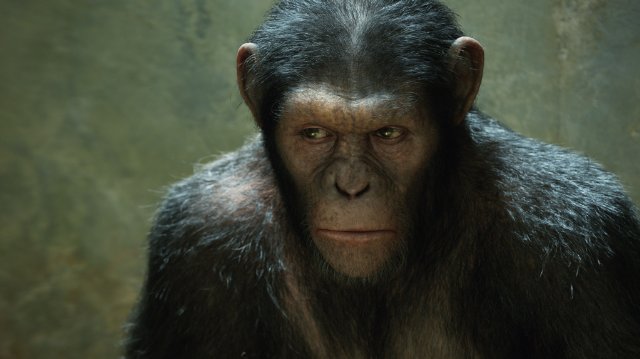
It’s really incredible when you think about it that way. Given the Academy, and how set in stone their rules are, it’s a shame that somebody like Andy in this performance—where there is so much emotion coming through, and so many quirks and tics and characteristics that he animates in this character—could never be considered, in this day and age, for a Best Supporting Actor award. It’s a shame, I think. What is your opinion on how the Academy makes their choices?
I am not a member of the Academy myself. In the makeup world, I have worked with a lot of Oscar nominees and winners—as in, makeup artists and that kind of thing. But as an observer of the Oscars over the years, it would appear that the movies that are more human and reality based tend to get more nominations. The more fantastical and otherworldly films tend to wow us, but don’t get Oscar nominations. It seems like that. And the makeup nominations…one that slipped through the cracks was my makeup team for Pan’s Labyrinth back in 2007. My faun character and the Pale Man character were as otherworldly and fantastical as you’re going to get. And they actually were nominated and did win the makeup award that year. But most years, there are a lot of makeup jobs that are done in films that are fantastical and otherworldly that take five hours of application or longer and they do not get nominated at all. But then, you’ve got the makeup job for Frida, for instance. Salma Hayek played that. There was an eyebrow involved, or a nose enhancement. Charlize Theron, who played Monster. That makeup job was also nominated for an Oscar. And they were great. They did affect a great look on these people. But it was much simpler. The Academy seems to like a well-known movie star who has been altered or enhanced slightly. That is what they love to nominate.
As opposed to creating a character almost from scratch, basically.
Exactly. Another case in point would be this year: the makeup members of the Academy have what they call a “bakeoff.” Seven films get to this bakeoff where they have to present all the makeup Academy members. And a movie I was in, Gainsbourg: A Heroic Life, which is a French film, they made me up to be Serge Gainsbourg’s alter ego in that. A cartoony, fantastical, exaggerated version of Serge Gainsbourg. This very iconic French singer/songwriter from the ‘60s and ‘70s. And that was another five-hour makeup application that involved prosthetics—and electronics, even, from the top of my head. And it was no different from what they did for me on Pan’s Labyrinth. And it was the same makeup team. DDT Efectos Especiales from Spain. But again, after the bakeoff was done this time, just because the film wasn’t well-known, and it was French, it didn’t have as much broad appeal worldwide. It ended up not making it into the final three nominees for makeup that year. No reason to be bitter over it at all. They make their decisions based on whatever they make them on. But it does make you tilt your head sometimes and curiously wonder. The amount of work that goes into one performance or one movie, and the amount that goes into another—one gets nominated and one doesn’t. It proves that it’s subjective.
Absolutely. There are probably a lot of factors that are a little bit more on the nose. Look at Lord of the Rings: Return of the King, which swept everything that year, including makeup. All three of those movies were nominated for pretty much all of the technical awards, I think. The makeup team that worked on Fellowship of the Ring and Two Towers, they’re the same guys that did very similar work in Return of the King. But for some reason, I think it’s more of a moment that you get caught up in, which is why they decided to give it to them at the end. Even though they had been doing that work for five years beforehand.
I agree. The emotional swell will get a nomination everytime.
Absolutely. And I don’t want to get too much into it, but I’m sure there are plenty of Hollywood politics that go into it as well.
Oh, sure.
But circling back, can you talk about having seen Andy’s role as Caesar in Rise of the Planet of the Apes. You’ve worked through prosthetics before, you’ve worked through makeup before. You’ve seen yourself digitally enhanced on screen. Can you talk about what the challenge is of physically defining a character in a mo-cap role, and how an actor works around potential production problems that arise when working with directors and cinematographers and different departments?
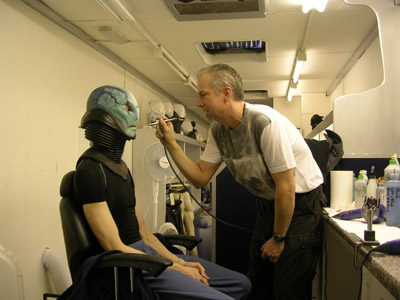 The best place for me to start would be with a comparison. When I’m wearing a creature suit and a costume, that is a practical application on my body that gets filmed, as opposed to what it would be like to wear a leotard with dots on it. The difference between those two for me would be after going through that four-or five-hour makeup application, you look at yourself in the mirror and say, “Oh my gosh. I am this beast right now.” That kind of actually helps your whole acting process, when you can look in the mirror and go, “Good gosh, now I get it.”
The best place for me to start would be with a comparison. When I’m wearing a creature suit and a costume, that is a practical application on my body that gets filmed, as opposed to what it would be like to wear a leotard with dots on it. The difference between those two for me would be after going through that four-or five-hour makeup application, you look at yourself in the mirror and say, “Oh my gosh. I am this beast right now.” That kind of actually helps your whole acting process, when you can look in the mirror and go, “Good gosh, now I get it.”
“Now you’re scary.”
[Laughs] Right, exactly. And all of those actor notes you were preparing for this, his intentions, his fears, his wants, all that is now a very visual thing as well. It does help enhance your performance. In motion capture, you have to have a great imagination to figure out what that’s going to look like later. And I’m sure they’d have an artist’s rendering of what you’re going to be looking like ahead of time, too. Here’s the design. And here’s what posture to affect to assume that character. But your imagination has to be a little bit more acute, I think, in the mo-cap performance type of work. [But] when you’re wearing a costume or suit, things come with it inhibit your performance as well. Vision problems, hearing problems, weight that inhibits the lifting of an arm. Or stilts on your feet that inhibit your balance, your walk. Vision impairment also inhibits your balance. Bumping into other people or props. So, that’s what comes with the practical makeup or costume suit. The movie I just worked on, and finished a few weeks ago, was Neighborhood Watch with Ben Stiller, Vince Vaughn, Jonah Hill.
Oh yeah!? I was going to ask about that.
It was great fun. It comes out July 27. It’s going to have very Ghostbusters humor, with a practical alien in it—and that would be me. That’s a combo platter, the way the Silver Surfer was. You’ve got me in a full costume—it took a whole team of people to put together. I was in stilts, I was seven feet tall. I had extensions that were very wavy and heavy and claw-like, and a mechanical face on. Very intricate, very costly, very time consuming. But we also wanted movement to come out of this character that was otherworldly and did not look like a guy in a suit. I’m a skinny guy in a heavy costume, so there’s only so much you can do that goes beyond ‘guy in a suit.’ So, the visual effects team is going to be enhancing, and embellishing, and making it look more fantastical. Had we started with performance capture, the freedom that buys you is that you don’t have the weight of all this latex, foam rubber and mechanics. Arm extensions, leg extensions, vision impairment. You have your full faculties about you with dots on you that are tracked into a computer system. And then, all of that, by look, is put on later. So you can assume those crazy poses and walks and lunges without fifty pounds on your back. So there are advantages and disadvantages to both. When the combo platter can come together, that’s the world we’re living in now. For a long time, there was a worry that computers were going to take over the world.
In reality, I always knew that wasn’t the case. In America we love our stars. We love our celebrities. We’re always going to want to see Leonardo DiCaprio on the big screen as Leonardo DiCaprio.
Right. But in the beginning, those fears were there. Especially now that I travel the fan convention circuit, when I’m between movies, I love doing those sci-fi fantasy comic book horror conventions.
What do you think the future of cinema will look like, given the rise of the motion capture performance? In Avatar, per say, you’ve got motion capture performance in a completely 3D digital environment. I think that’s the next step of cinematic evolution that some people might have feared. “Maybe they don’t need actors anymore. They’re not even shooting on location anymore. They’re in a studio with sets that don’t even really exist.” I just wonder what your take on a phenomenon like that is.
Honestly, at first glance, there might be a fear of, ‘Oh no, is this going to take over?’ But I think that all genres of film need to be represented—and that would include the 3D, computer enhanced, computer generated, performance captured—there’s absolutely a place for that, and there’s absolutely an audience for that. There will always be an audience for the British frock drama, with a bunch of ladies in dresses and tailcoats, sipping tea and having great dialogue. That does not need 3D, that does not need any kind of motion capture.
Absolutely.
There’s always an audience for every genre of film. So, I think that we’re not going to lose anything. We’re only gaining things.
We mentioned the Silver Surfer. In my opinion, and in the opinion of many, you and your character were the absolute standouts of that second Fantastic Four film. I would love to know if there has been any talk, or if you heard anything about the rumors of a Silver Surfer spinoff film. Would you like to return to that role? Is it anywhere near reality?
It was near reality. Back when we were making the Fantastic Four sequel, Rise of the Silver Surfer, I did have a three picture deal in place that would cover two more films. To keep the Silver Surfer alive for more spinoffs. So that was the reality, and there was a script written by J. Michael Straczynski, a few years ago.
He’s brilliant.
That’s the last I’ve heard of any of that. Now they’re talking about rebooting Fantastic Four with a whole new cast. Where does that leave the Silver Surfer? No idea. I’m shrugging my shoulders without a clue. Do I want to return to the character? Absolutely. Are there things I want to explore? Absolutely. His origins in the comic books were so, so poetic and Christ-like. The sacrifice he made to give up his freedoms. To sacrifice his lifestyle to save his planet and the woman that he loves. It’s a great storyline to go back and delve into. And to explore the tragedy of this heroic character. He seems like a bad guy when you first meet him, but he really is the most stoic, heroic character I’ve ever played, for sure. To try to channel that all-powerful energy he has, but with the consonance and the posture that he had. That was a challenge for me. Because I’m very expressive, very arm flappingy and very facial expressiony when I talk. So, trying to rest in that quiet strength was the biggest challenge for me. I would love to explore that again, because I had never felt so handsome.
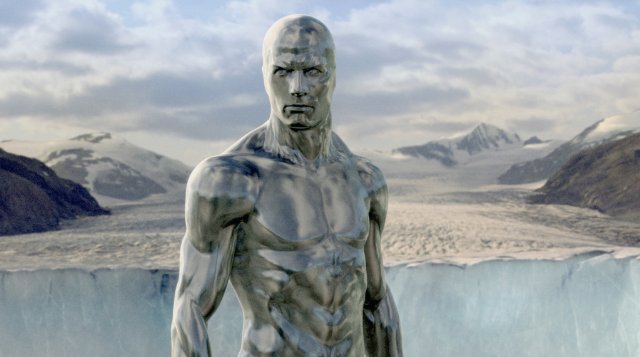
That was the sexiest part of that movie, hands down. Take pride in that. Have you heard anything about your good friend Guillermo del Toro’s Pacific Rim, which we’re heavily anticipating? I live by the mindset that Guillermo should always find a spot in his films for either you or Ron Perlman. I wanted to bounce around the suggestion of whether or not he might have found a spot for you in that picture?
I would say, not for me. All I can report is what I’ve seen publicly. He has not talked to me privately about Pacific Rim at all. He talked about giant aliens being fought off by giant robots. He always said, if a character is too big or too small, he’ll defer to CG. I have not been called in for any kind of work on that film. Ron Perlman does have a character in the film. So, half of it is true.
Maybe next time around. I know that you are also attached to a Frankenstein reimagining with him. I don’t know if anything is happening with that. I would love to see you take on an iconic character like that.
The Frankenstein notion is the one that I’m most excited about. As far as I know, it’s still in development at Universal. Last I heard, he did not have a full, completed script for that. He put in a treatment and a synopsis to Universal to get story ideas plotted out with them. That was last summer.
So it’s still very much alive actually?
Yeah. He’s been talking about it. The first time I heard about it was the summer of 2008. It’s one of those years-long projects. He’s not going to rush it because it’s his childhood dream to make this story.
And he’s got his hands full with about a thousand other projects, I bet.
A thousand other projects, exactly. There was news recently about him taking on a Beauty and the Beast movie. And there’s been rumors flying about Ron Perlman and me in that, which are unfounded and untalked about as well. So I have no response to those at all. No one has talked to me directly about that.


